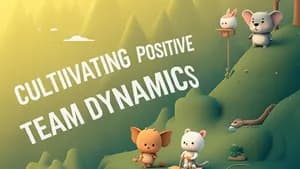Understanding Individual Strengths
Before you can effectively leverage individual strengths within a team, you must first identify them. This isn't about simply listing skills; it's about understanding the unique talents and approaches each member brings. Think about your own strengths. Are you a natural problem-solver, a creative thinker, a detail-oriented organizer, or a skilled communicator? Maybe you excel at research, synthesizing information, or leading discussions. Take some time for self-reflection. Consider past projects, both academic and personal. What did you enjoy? What came easily to you? What aspects did you find yourself drawn to, even if they were challenging? Identifying these strengths is the crucial first step. I've seen countless students struggle because they underestimate their own abilities. They focus on what they're not good at, ignoring their inherent strengths. This often leads to frustration and hinders overall team progress. Remember, your strengths aren't just about what you can do; they're also about what you enjoy doing. This passion will propel your contributions and energize the team. Encourage your child to explore different roles and activities to uncover hidden talents.
Effective Team Communication and Collaboration
Once you understand your strengths, it's essential to communicate them effectively within your team. Open and honest communication is the bedrock of any successful team effort. Don't be shy about sharing your skills and how you can contribute. Often, I've observed that students hesitate to voice their strengths, fearing they'll come across as boastful. This is a misconception. Clearly communicating your capabilities helps your team allocate tasks appropriately, maximizes efficiency, and prevents duplication of effort. Furthermore, actively listen to what your teammates have to offer. Learn from their perspectives and skills. One student I remember had exceptional organizational abilities; while another was a creative genius. By pairing them, I fostered an environment where their respective strengths complemented each other. They learned from each other, expanding their individual skill sets and contributing to a higher quality of work than either could have achieved independently. Use active listening techniques like summarizing their points to ensure you understand their contributions and perspectives.
Assigning Roles and Responsibilities Based on Strengths
Effective teamwork isn't about everyone doing everything; it's about assigning tasks based on individual strengths. This requires a collaborative approach. In a study group, for instance, one student might excel at explaining complex concepts; another might be a whiz at finding relevant research materials; and a third might be a master of creating concise and well-structured presentations. When roles are assigned accordingly, each member can focus on their area of expertise, leading to better results. I recall one particularly successful team project where the students consciously assigned roles based on a pre-project assessment of their skills. Each student's strengths were played to maximize their efficiency and effectiveness. Don't be afraid to experiment with different roles and task distributions. Flexibility is key, especially in dynamic situations, and this will help to build adaptability and problem-solving skills. Always ensure that everyone understands their responsibilities and how their individual contributions impact the overall project outcome.
Fostering a Supportive and Inclusive Learning Environment
Teamwork is enhanced by a positive and supportive environment where everyone feels comfortable sharing ideas, asking questions, and offering constructive criticism. This requires building trust and mutual respect among team members. When working collaboratively, celebrate successes together, and provide supportive feedback during challenging moments. This will create a culture where asking for help or admitting uncertainty is not seen as weakness but as an opportunity for learning and growth. Encourage a culture of feedback exchange. Regularly check in with your team members to gauge their progress, provide assistance when needed, and address any roadblocks encountered during the learning process. Celebrate both small wins and milestones to keep the motivation high and ensure everyone is engaged and feeling valued. This fosters a positive reinforcement loop. A lack of support often undermines the motivation of team members leading to poor performance and negative effects on the team dynamic. You can improve team cohesion by engaging in team-building activities that go beyond academic tasks.
Overcoming Challenges and Conflicts
Even in the most well-organized and supportive teams, conflicts can arise. These disagreements are inevitable; it's how you manage them that matters. One of the most valuable lessons I've learned is that conflict is not necessarily a bad thing. It often represents a clash of ideas, offering a chance to expand perspectives and achieve a more creative solution. Effective conflict resolution involves active listening, empathy, and a willingness to compromise. Encourage students to express their concerns respectfully and engage in constructive dialogue. Frame any disagreement as an opportunity to learn from one another’s perspectives. Always work collaboratively to resolve conflicts. Start by identifying the root causes of conflict and create a strategy to resolve them together. Always have a plan in place to mitigate potential conflicts before they arise. By emphasizing open communication and collaboration, conflicts can become opportunities for learning and team growth, leading to even stronger relationships and more effective teamwork.
Conclusion
Harnessing individual strengths for team success is a journey, not a destination. It requires self-awareness, effective communication, and a commitment to creating a supportive and inclusive learning environment. By following the strategies outlined above, you'll not only improve the overall performance of your team but also cultivate valuable skills in collaboration, conflict resolution, and leadership – skills essential for success in both academic and professional endeavors. Remember, your strengths are your superpowers. Embrace them, share them, and watch your team soar.

